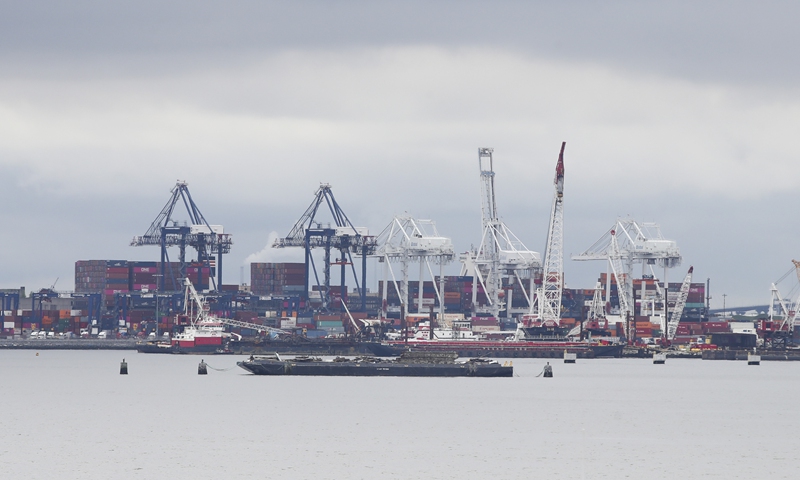
Photo taken on May 14, 2019 shows a cargo loading area of Port Jersey in New Jersey, the United States.Photo:Xinhua
The United States has decided to suspend proposed tariffs on about 1.3 billion US dollars worth of French products amid a dispute over digital service taxes (DSTs), the US Trade Representative's (USTR's) Office said Thursday.
The additional 25-percent tariffs on certain French products were announced in July 2020 in response to France's DST that impacts major US technology companies, and were scheduled to go into effect on Wednesday.
"The US Trade Representative has decided to suspend the tariffs in light of the ongoing investigation of similar DSTs adopted or under consideration in ten other jurisdictions. Those investigations have significantly progressed, but have not yet reached a determination on possible trade actions," the USTR's Office said Thursday in a statement.
"A suspension of the tariff action in the France DST investigation will promote a coordinated response in all of the ongoing DST investigations," the statement said.
The move came after the United States on Wednesday claimed that DSTs adopted by India, Italy and Turkey discriminate against American companies without taking any tariff actions.
"USTR is not taking any specific actions in connection with the findings at this time but will continue to evaluate all available options," the USTR's Office said Wednesday.
In June 2020, the United States initiated Section 301 investigations into DSTs considered by 10 US trading partners, including the European Union, Brazil and India.
The so-called Section 301, under an outdated US trade law adopted in 1974, allows the US president to unilaterally impose tariffs or other trade restrictions on foreign countries.
The global trading community has become increasingly concerned that the US government's frequent use of Section 301 would go against the World Trade Organization rules, undermine the multilateral trading system and disrupt the global supply chain.
